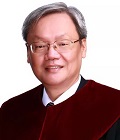| When: | Friday, December 13, 2019 - 21:00 to Sunday, December 22, 2019 - 17:00 |
|---|---|
| Venue: | SMU School of Law, 55 Armenian Street, Singapore 179943 |
Synopsis
To promote the awareness of the importance of and the correct application of social-legal methodology among young legal scholars from within and outside of Singapore, the Applied Research Centre for Intellectual Assets and the Law in Asia (ARCIALA) School of Law, Singapore Management University will be organizing a camp for research methods and theory building, which will be a 10-day event between Dec. 13 and 22, 2019. The camp will feature general research methodology by Professor Mark Findley (SMU), which is limited to 12 participants by invitation only. The workshop will also compare and contrast the common law and civil law approaches to law via three talks by Dr. Su Yeong Chin (Chair Prof. at National Chenchi University, Taiwan), which are open to the public. Seats are limited, you may register via the links below.
Speaker

Yeong Chin Su holds an LL.B. and LL.M. from National Taiwan University and a Doctorate from the Ludwig Maximilian Universitaet (University of Munich). He was a full professor at the College of Law of the National Chengchi University till Oct. 2010, when he was appointed to be Justice and Vice President of the Judicial Yuan. He retired on Oct. 1. 2016 and since then became Chair Professor of the National Chengchi University, Chair Professor of the Zhejiang University and chair Professor of the Nanjing University. During his academic career he has served as member of National Assembly (1991-1995), Vice Chairperson of the Fair Trade Commission (1996-1998) and Chairperson of the National Communications Commission (2006-2008). He has been honored by the Ministry of Education with a National Chair Professor for his research in Civil Law, Constitutional Law and Economic Law (2002-2005).
1) Precedent as a Source of Law
Date: 16 December 2019, Monday
Time: 6-9pm
Lawyers all over the world read statutes and court decisions. Both of them are sources of law. The real difference lies in the way lawyers treat them. Or, which of them is the final justification of a court’s decision. However, also in the Civil Law world there are areas, where precedents are recognized as binding. The question is then, whether they could borrow the methodology of precedent developed in the Common Law countries.
Click HERE to register
2) Codification - An Outdated Idea?
Date: 18 December 2019, Wednesday
Time: 6-9pm
Civil code is one of the basic features of the Civil Law culture. Great Civil Codes were born in the 19th century. But out of various reasons criticism of codification became a mode in the 20th century, especially after the WWII. It is clear that most arguments for codification in the 19th century don’t suit any more. The only reason that codification still prospers at the turn to the 21th century, with the Chinese Civil Code 2020 as a good case, lies in its system thinking. From this perspective we might predict that the old German Pandectic School could bring out new mode of Civil Code, though not made in Germany.
Click HERE to register
3) Legal Dogmatics - Too Much or Insufficient?
Date: 20 December 2019, Friday
Time: 9.30am - 12.30pm
Lawyers tend to spend most of their time on systematic interpretation of a law or a code, without evaluating it. This kind of dogmatic thinking meets the challenge from those who think lawyers should make use of social sciences to get a better understanding of law. Here too, differ the Civil Law and Common Law countries, as to what is to expect from professional lawyers. The tendency, from formalistic to substantive, in the old European legal culture becomes so clear nowadays, that dogmatic analysis seems discouraged. Nevertheless, so long as dogmatic study irreplaceable in Civil Law countries is, one should not neglect the insufficiency of the traditional dogmatic methodology. It is time to pay more attention to the interfaces among the legal areas. The stiffness of systematic analysis could be lessened through more integrating, cross-sectional doctrines.
Click HERE to register
Last updated on 12 Jul 2021 .